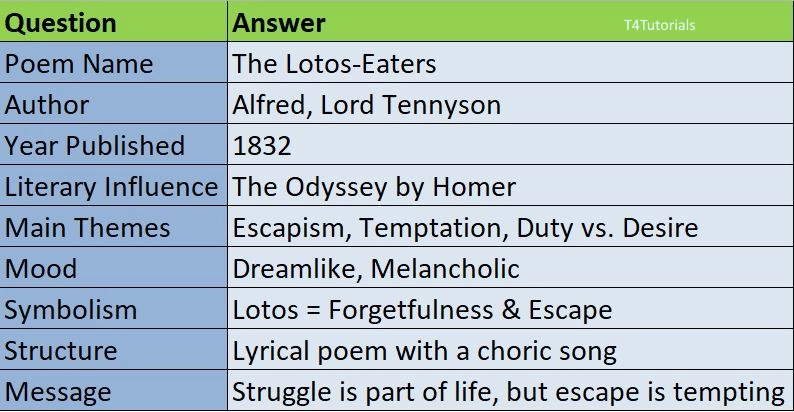Summary:
“The Lotos-Eaters” is a poem by Alfred, Lord Tennyson, published in 1832. It is inspired by Homer’s Odyssey, specifically the episode where Odysseus and his crew arrive at the land of the Lotos-Eaters. In the poem, the sailors land on an island where they encounter the Lotos-Eaters, who offer them the lotus fruit. After eating it, the sailors fall into a dreamlike state, losing their desire to return home. The effects of the lotus make them forget their struggles and responsibilities, making them long for a life of rest and pleasure. The poem explores themes of escapism, temptation, and the conflict between duty and desire. The sailors debate whether to continue their journey or stay in the land of ease, ultimately deciding that struggling against fate is useless. Tennyson uses lush imagery, musical language, and melancholic tones to emphasize the seductive beauty of the Lotos-Eaters’ world, raising questions about whether it is better to struggle or surrender to a life of peaceful oblivion.
10
Score: 0
Attempted: 0/10
Subscribe
| Question | Answer |
| Poem Name | The Lotos-Eaters |
| Author | Alfred, Lord Tennyson |
| Year Published | 1832 |
| Literary Influence | The Odyssey by Homer |
| Main Themes | Escapism, Temptation, Duty vs. Desire |
| Mood | Dreamlike, Melancholic |
| Symbolism | Lotos = Forgetfulness & Escape |
| Structure | Lyrical poem with a choric song |
| Message | Struggle is part of life, but escape is tempting |